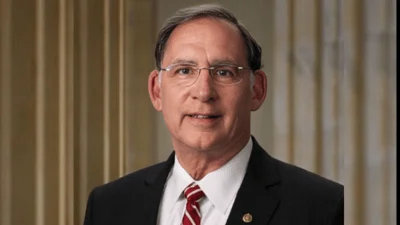The Biden-Harris administration’s proposed budget for fiscal year 2024 aims to grow the economy from the bottom up and middle out while lowering costs for families, protecting and strengthening Medicare and Social Security and reducing the deficit by asking the wealthy and big corporations to pay their fair share, according to the head of the Department of Labor (DOL).
“President Biden’s 2024 budget request of $15.1 billion in discretionary resources for the Department of Labor allows us to fulfill our commitment to advance equity in all aspects of our work, including enforcing lifesaving safety and health laws, advancing Registered Apprenticeships and sector-based training, and securing retirements for millions of workers and families,” Secretary of Labor Marty Walsh said in a press release issued March 9.
The DOL’s budget includes investments to empower and protect workers, expand pathways to good jobs, improve access and equity in the unemployment insurance system, expand employment protections for military spouses, and strengthen mental health parity protections, the release reports. The proposed budget aims to reduce deficits by nearly $3 trillion over the next decade.
The DOL’s budget also invests $2.3 billion to promote fair, safe and healthful workplaces for all, especially those in high-risk and underserved communities, combat exploitative child labor, and protect the benefits and financial security of all workers, according to the release.
The budget supports effective, evidence-based training models to ensure all workers have the skills they need to obtain high-quality jobs, with $200 million allocated to launch the “Sectoral Employment through Career Training for Occupational Readiness” program, the release reports. The budget invests $3.7 billion to modernize, protect and strengthen the unemployment insurance program and expands anti-discrimination and reemployment protections to spouses of all active-duty and reserve members.
The budget invests in programs to strengthen mental health parity protections and provides additional support to the Civil Rights Center, Women's Bureau, Secretary's policy office, Good Jobs Initiative, and Office of Disability Employment Policy to promote equal opportunity and nondiscrimination, according to the release.








